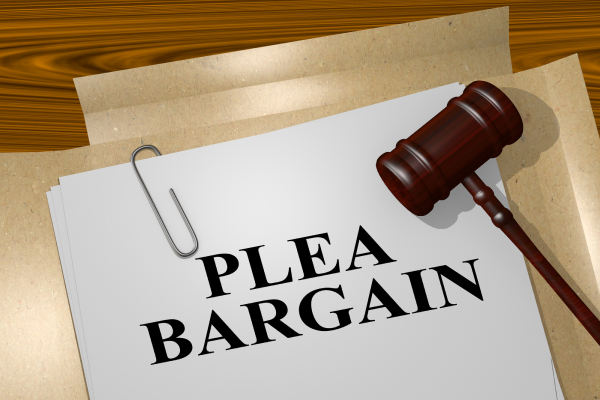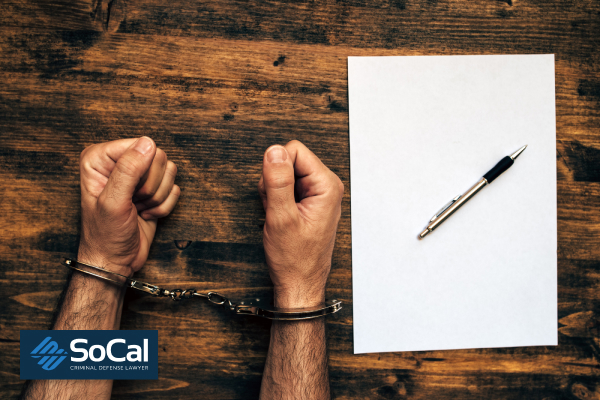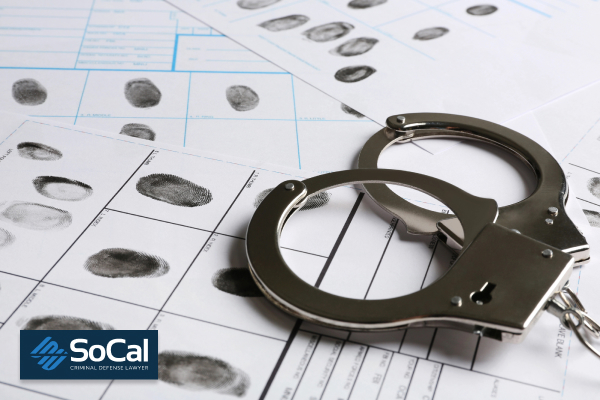
Knowing all your options, including plea bargains, is crucial when you face criminal charges. A plea bargain can alter your case's outcome, potentially reducing your sentence or even the charges against you.
At SoCal Criminal Defense Lawyers, we guide our clients through every step of the plea bargaining process, ensuring they make informed decisions based on their best interests. Our experienced attorneys are skilled in negotiating favorable terms with prosecutors, aiming to secure the best possible outcome for our clients.
Plea bargains are a common yet complex aspect of the criminal justice system. They offer a way for defendants to avoid the uncertainty and expense of a jury trial by agreeing to plead guilty to lesser charges.
At a minimum, plea bargains require careful consideration and strategic negotiation to protect your rights and future. Our team at SoCal Criminal Defense Lawyers is committed to providing you with the knowledgeable legal support necessary to navigate this challenging landscape.
A plea bargain is an agreement between a defendant and a prosecutor in which the defendant agrees to plead guilty to a lesser charge or only one of several charges in exchange for concessions from the prosecutor. These concessions might include a lenient sentence or dropping other charges.
These bargains are used to resolve many criminal cases in the United States. They allow both the defense attorney and the prosecution to avoid the uncertainty and cost of a trial.
Plea bargains serve several purposes in the criminal justice system. They help manage the caseload of courts and prosecutors by resolving cases quickly and efficiently.
By agreeing to a plea bargain, the state and the criminal defendant can often avoid the complexities and uncertainties of a trial. This is often seen as a practical solution for both parties.
Plea bargains also allow defendants to receive a potentially lighter sentence than they might if found guilty at trial. They are used in cases of domestic violence, homicide, drug charges, gun charges, and others.
Bargains can negotiate terms that might not be available through sentencing hearing a jury verdict, such as reduced charges or sentencing recommendations.


Plea bargains offer several advantages to defendants. They provide an opportunity to reduce the uncertainty associated with trials, potentially lessening the charges or the sentence.
By accepting a plea deal, defendants can often avoid the public spectacle and stress of a trial. This process usually leads to a quicker resolution of the case, allowing individuals to move forward with their lives sooner.
Plea bargains often result in reduced charges, leading to lighter sentences. This is particularly important in cases where the potential penalty for the original charge is severe. Reduced charges and guilty pleas can also lessen the effect on a defendant's criminal record.
Plea bargains eliminate the uncertainty of a jury trial, where the outcome of the guilty verdict is unpredictable. By negotiating a plea, defendants have a clearer comprehension of the outcome, which can be less risky than leaving the decision in the hands of a jury.
The plea bargaining process is typically much faster than a trial. This expediency in the the court system can benefit defendants by reducing legal fees and minimizing the emotional stress of prolonged legal battles.
Opting for a plea bargain can substantially reduce the costs associated with a full jury trial and defense. Trials can be expensive due to attorney fees, court costs, and the potential for extended litigation.
Despite their benefits, plea bargains have drawbacks. These agreements require defendants to forfeit certain rights, such as the right to a trial by jury. Considering these disadvantages carefully is important before deciding to accept a plea bargain.
Accepting a plea bargain typically requires a defendant to plead guilty, leading to a criminal record. This admission can have long-term consequences, affecting employment opportunities and public perception.
If the defendant pleads guilty, it changes the course of the case. Therefore, a guilty plea to a criminal act should only be entered under the right circumstances.
Inappropriate pressure could lead to a defendant pleading guilty, particularly if they are represented inadequately or are unaware of their rights. This can lead to plea agreements that are not in their best interest.
When defendants accept a plea bargain, they usually waive their right to appeal the conviction. This means they cannot challenge the plea or the sentence in a higher court, which can be a major disadvantage if circumstances change.

Several factors influence the negotiation and acceptance of plea bargains. These factors include the strength of the prosecution's case, the defendant's criminal history, the severity of the charges, and the defendant's willingness to cooperate with authorities.
The stronger the evidence against a defendant, the better it might be for the defendant to accept a plea bargain.
If the case against the defendant is weak, the defense may have more leverage to negotiate favorable terms of the contest plea. This could include a complete dismissal.
Defendants with little to no criminal history are more likely to receive favorable plea bargain offers. Those with extensive criminal backgrounds may find it more challenging to negotiate lenient terms.
The severity of the charges will influence plea negotiations. More serious charges may lead to harsher punishment or plea bargain terms, while lesser charges may allow for more lenient negotiations.
Defendants who are willing to cooperate with law enforcement or provide valuable information in other cases may receive better plea deals or bargain offers. This cooperation can sometimes lead to huge reductions in charges or sentences.
Having an experienced criminal defense lawyer is critical when navigating plea bargains. Your criminal trial lawyer will test the strength of the prosecution's case, negotiate terms on your behalf, and protect your rights during the process. They are key in securing a plea bargain in your best interest.
An effective criminal defense lawyer will explain all your options and help you recognize the potential consequences of each choice. They will also ensure that any plea bargain is fairly negotiated and that you fully understand the terms before agreeing. This guidance is invaluable in making decisions that will considerably affect your future.

Accepting a plea bargain is an important decision that should not be taken lightly. At SoCal Criminal Defense Lawyers, we consider all aspects of your case, including the evidence, the charges, and your personal circumstances, to determine whether a plea bargain is in your best interest.

If you are considering a plea bargain or facing criminal charges, don't hesitate to contact SoCal Criminal Defense Lawyers for a free consultation. Our skilled attorneys can give you the advice and representation you need during this challenging time.
Is a plea bargain deal right for you? Contact us today for a free consultation to discuss your criminal case.
Search our site

Follow Us
"*" indicates required fields